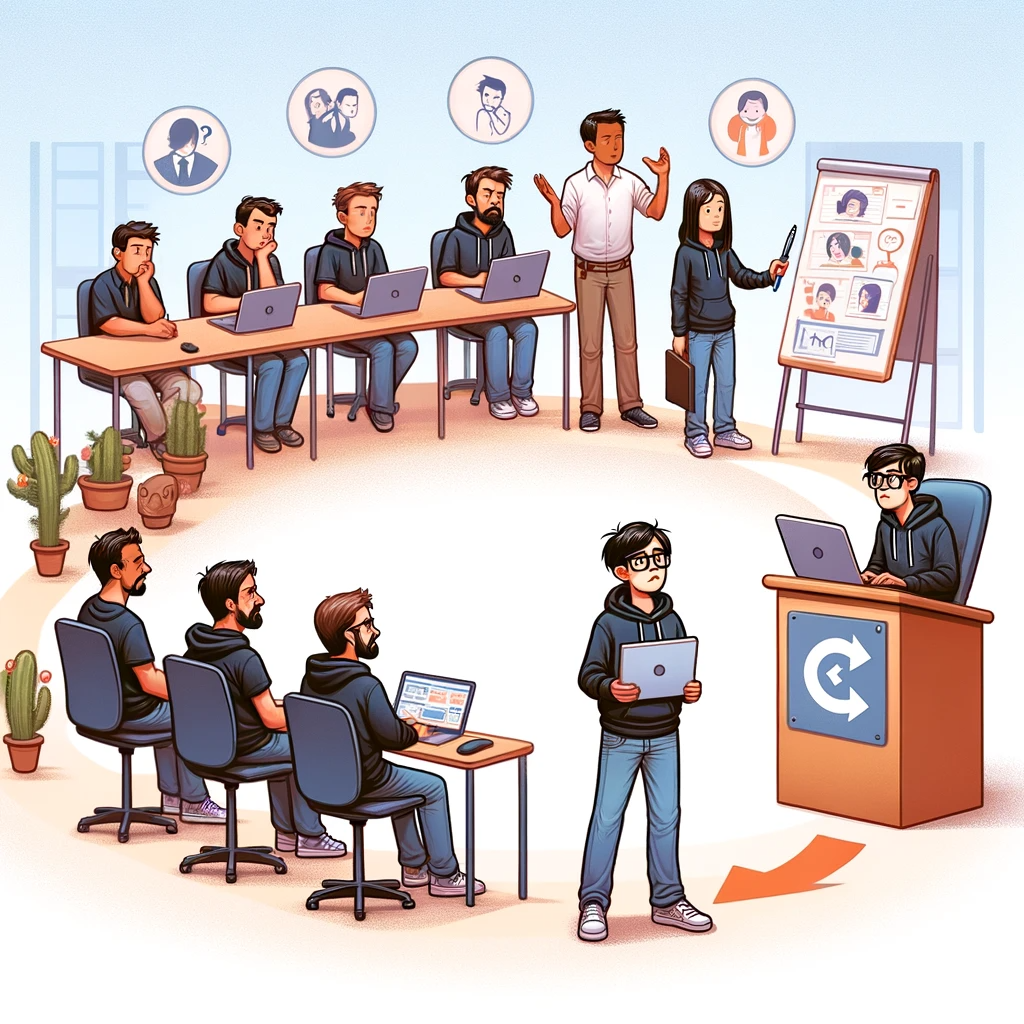
One Skill to Rule Them All (it’s not the one you think)
A quick online search on essential skills for testers yields a plethora of results: analytical capabilities, programming skills, soft skills, and more. Each of these skills is vital in its own right, and it’s not my intention to belittle their significance. However, as we embrace the spirit of new beginnings in 2024, a question arises: Is there one skill that stands a cut above the rest?
When asked about the most coveted skill in their profession, many software testers are likely to mention analytical thinking. It’s a skill that’s widely recognized and often tops the list of desirable attributes in the field. Testers yearn to sharpen this skill, articles and forums are replete with tips on enhancing analytical capabilities, and it’s frequently highlighted in job descriptions.
However, despite the popularity and apparent importance of analytical thinking, there’s an even more crucial skill that often gets overshadowed: the ability to communicate effectively.
While the knack for dissecting problems and analyzing data is invaluable, it’s the proficiency in communicating these analyses — clearly, concisely, and compellingly — that truly amplifies a tester’s effectiveness and impact in the dynamic world of software testing.

Why Communication is the Keystone
When we talk about communication in the context of software testing, we’re referring to much more than the ability to compose emails or write reports. Effective communication encompasses both written and verbal skills, each with its unique challenges and nuances.
1 The Written Word: Writing, an integral part of a tester’s job, requires clarity, precision, and the ability to convey complex ideas simply. It allows for thoughtful reflection and careful structuring of thoughts.
2 The Spoken Word: On the flip side, verbal communication, particularly in real-time settings like meetings or stand-ups, demands spontaneity, quick thinking, and the ability to articulate thoughts clearly and concisely. Unlike writing, where one has the luxury of time to edit and refine, speaking happens in the moment and leaves little room for second-guessing.
The Art of Explanation
A tester’s job isn’t just to understand technical concepts; it’s also to explain these concepts to others — developers, stakeholders, or non-technical team members. This dual requirement — to comprehend and to elucidate — is where many testers face their greatest challenge.
1 Comprehension vs. Communication: One can have a deep understanding of a subject but struggle to communicate that understanding effectively. This gap is akin to knowing a language but not being fluent in speaking it.
2 Technical Jargon vs. Layman’s Terms: Furthermore, testers often need to translate technical jargon into simpler terms. This translation requires not only a deep understanding of the subject matter but also an awareness of the audience’s knowledge level.
The Psychological Dimension: Imposter Syndrome and Self-Esteem
Communication skills, or the lack thereof, can have a profound impact on a tester’s psychological well-being. In an environment where eloquence and the ability to present ideas confidently are valued, testers who struggle with communication may find themselves grappling with imposter syndrome and low self-esteem.
1 Self-Doubt and Comparison: Testers who are not confident in their communication abilities might constantly compare themselves to more articulate colleagues, leading to feelings of inadequacy.
2 The Spiral of Silence: This lack of confidence can result in a reluctance to speak up in meetings or contribute ideas, further exacerbating the feeling of being an ‘imposter’ in the field.
The Journey Step by Step
Considering the vital importance of communication skills among all abilities crucial for testing, what are the best ways to develop and refine these skills? This journey is complex and demands a well-planned strategy.
The first step in this journey is recognizing the importance of communication skills. This recognition involves understanding that communication is not just a supplementary skill but a core competency that can significantly impact one’s effectiveness as a tester.

Once the importance of communication is acknowledged, the next step is to actively work on developing these skills. This development can take many forms:
1 Workshops and Training: Participating in communication workshops or training sessions can provide a structured approach to improving both written and verbal communication skills.
2 Practice and Feedback: Regular practice, coupled with feedback from peers or mentors, is crucial. This could involve presenting at team meetings, writing documentation, or even engaging in mock testing scenarios where communication is key.
3 Learning from Others: Observing and learning from skilled communicators within the organization can provide valuable insights into effective communication strategies.
The Outcome: A More Effective Tester
The investment in communication skills pays off in multiple ways. Testers who are adept communicators are more effective in their roles, can collaborate better with their teams, and are better equipped to handle the complexities of modern software development environments. They are also likely to experience higher job satisfaction and self-confidence.
The impact of strong communication skills extends beyond the immediate realm of software testing. Testers who excel in communication often find themselves better positioned for leadership roles and more effective in cross-functional collaborations. They become advocates for the testing team, elevating the role and importance of testing within the organization.
Communication Challenges in Testing
Despite its importance, effective communication in software testing is not without its challenges. Testers often face barriers that can hinder their ability to communicate effectively.
The Jargon Jungle
The inherently technical nature of software testing can lead to communication filled with jargon, which can be alienating or confusing to those not well-versed in technical language. Simplifying complex concepts without losing their essence is a skill that requires practice and finesse.
Cultural and Language Differences
In today’s globalized work environment, testers often find themselves working with team members and clients from diverse cultural and linguistic backgrounds. Navigating these differences requires not only linguistic skills but also cultural sensitivity and awareness.
Remote Communication
With the rise of remote work, testers are increasingly reliant on digital communication tools. The lack of face-to-face interaction can lead to misunderstandings and a sense of disconnect. Mastering the art of digital communication is therefore becoming increasingly important.
Enhancing Communication: Practical Tips for Testers
Given the challenges and the importance of communication in software testing, what practical steps can testers take to enhance their communication skills?
1 Active listening involves fully concentrating, understanding, responding, and then remembering what is being said. It is foundational for effective communication, as it ensures that you are truly understanding the concerns and perspectives of others.
2 Audience Awareness: Effective communicators adjust their message based on their audience. This might mean using more technical language when speaking with developers or simplifying concepts for non-technical stakeholders.
3 Continuous Learning: Communication is a skill that can always be improved. Engaging in continuous learning, be it through formal training, reading, or simply practicing in everyday interactions, is key.
4 Seeking Feedback: Actively seeking feedback on your communication style and content can provide valuable insights into areas of improvement. Constructive criticism should be viewed as an opportunity for growth.
Conclusion
It’s a skill that, once mastered, can set a tester apart, making them not just a valuable team member, but a vital asset to any organization. Let’s make communication our focus, our strength, and our pathway to success in the ever-evolving world of software testing.
